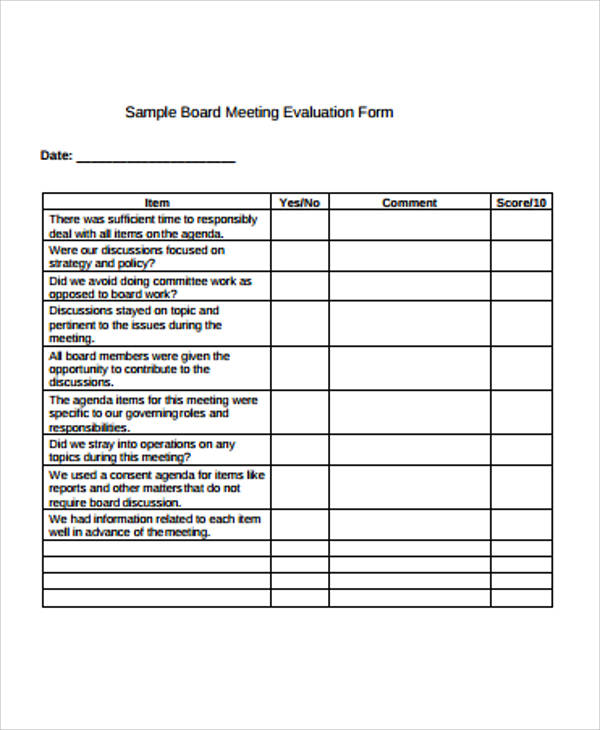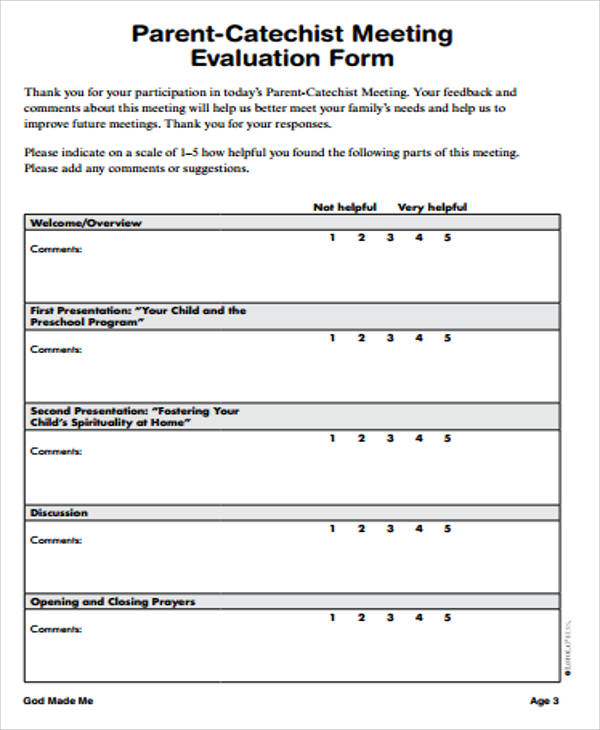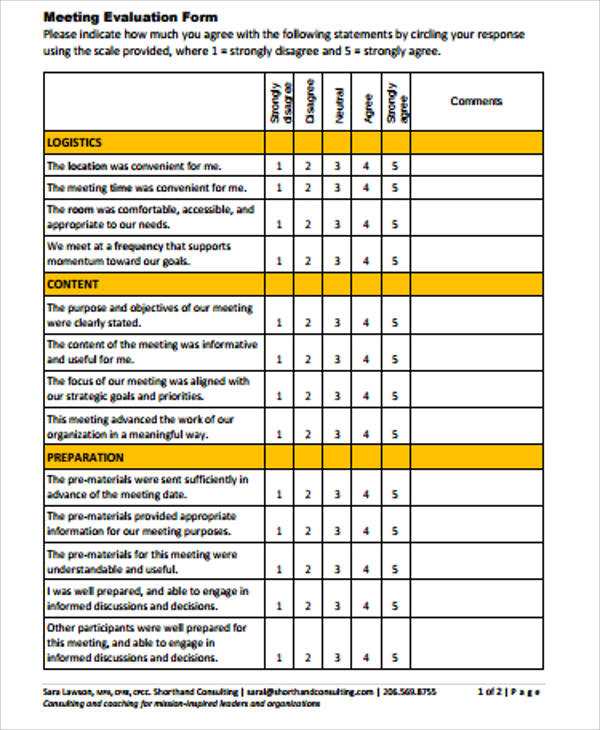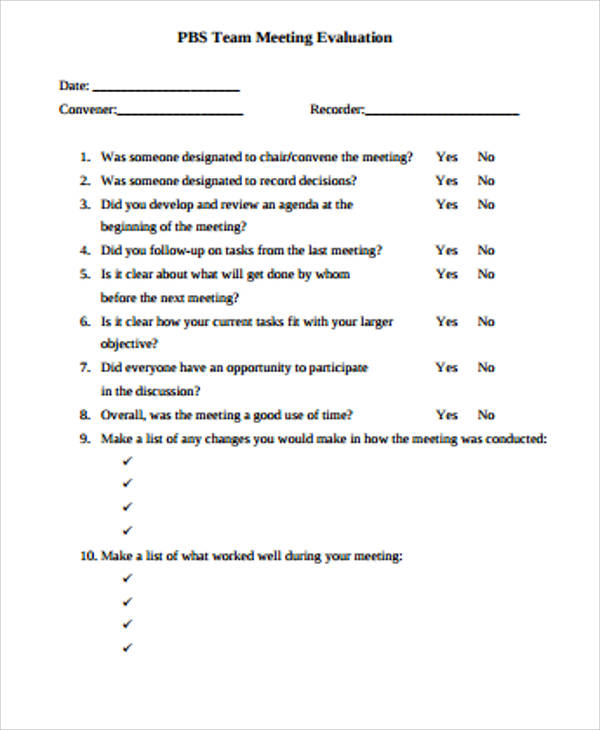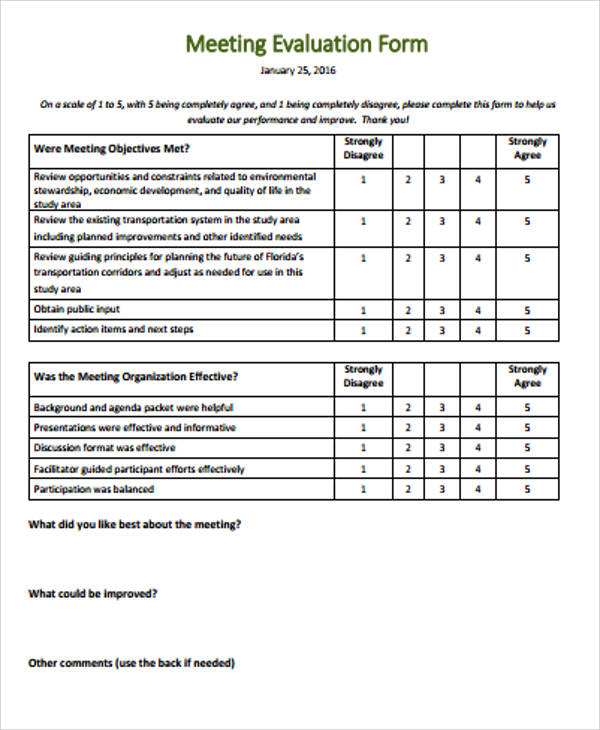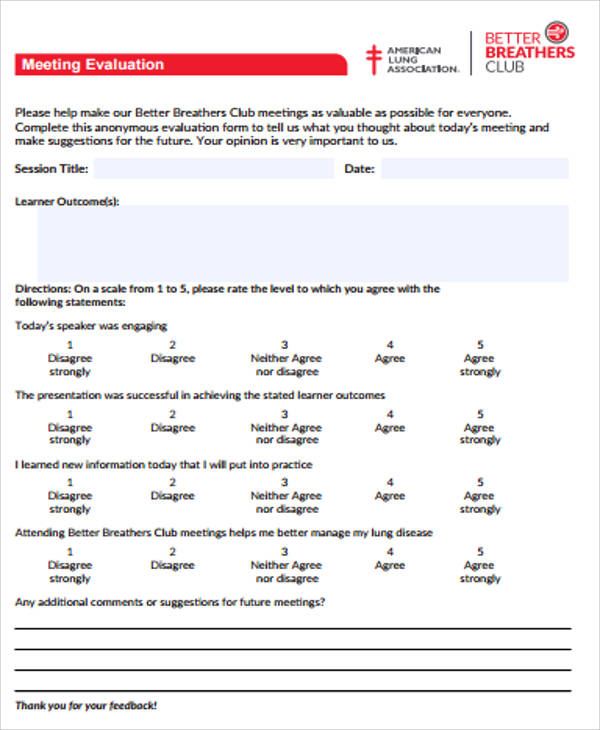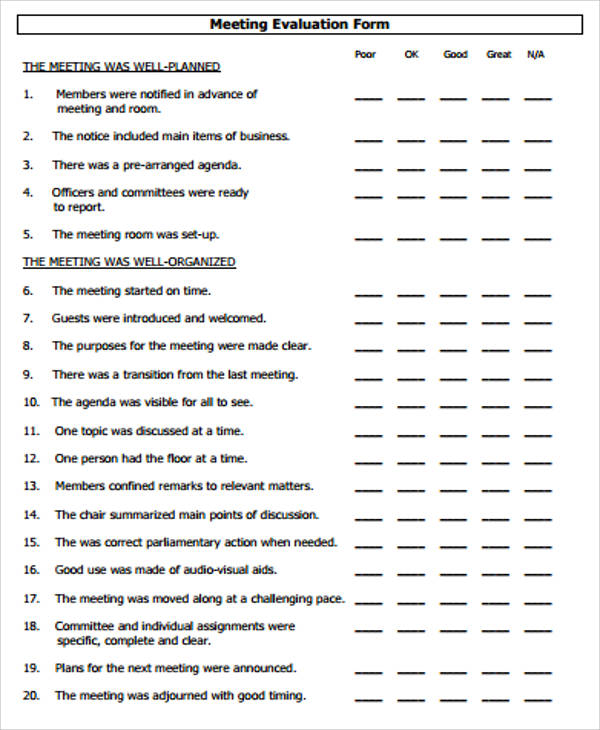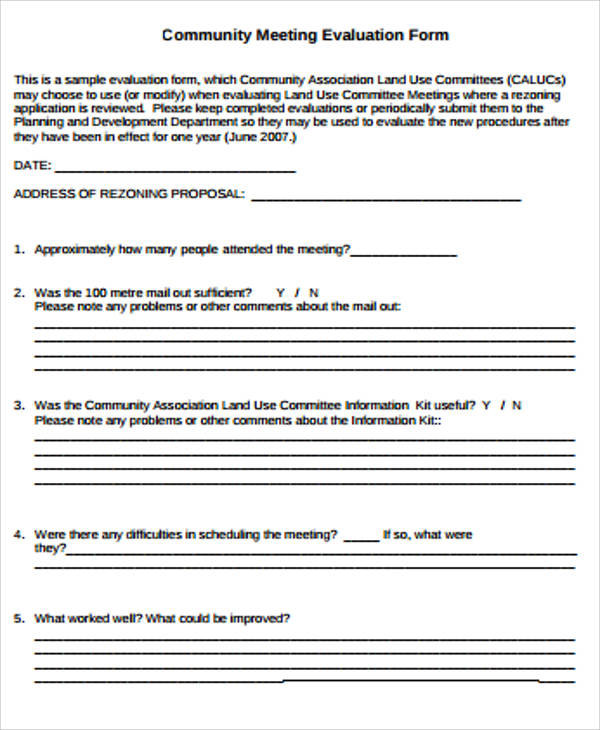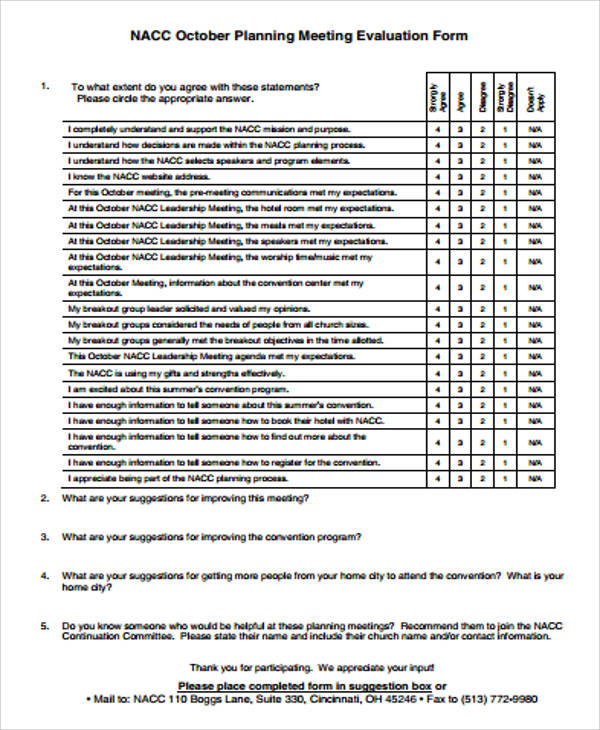A meeting is an occasion when people gather and convene to discuss something, come to a decision regarding a matter, or achieve a common goal in the means of a verbal interaction. While most meetings are face-to-face events, the development of communication technology has allowed for meetings to happen virtually between people from different time zones through a telephone conference or a video conference.
Almost every group activity requires that a meeting, or a number of meetings, be held by the group members. Having effective and efficient meetings can help make sure that the project is successful. Otherwise, time and resources are being wasted.
It is important to know if the meeting you just held is helping your team reach its objectives or if it’s not doing your project any help at all. You can know this by conducting an evaluation after each meetings. Download these Sample Forms to help you come up with an evaluation form.
Sample Board Meeting Evaluation Form
Parent Meeting Evaluation Form Free
Meeting Evaluation Form in PDF
Team Meeting Evaluation Form Example
Purpose of a Meeting
Meetings are held for a number of different reasons. Some of the most common reasons to hold meetings are
- brainstorm,
- make plans and decisions,
- solve problems and straighten out issues,
- motivate and encourage team members,
- update on progress, and
- provide a sense of direction and set a common purpose.
Evaluation Meetings
The number of people who are attending a meeting vary. Some meetings are huge and could last days while others could be a simple one-on-one meeting that could last a few minutes. In an organization, an evaluation meeting takes place between an evaluator and the employee being evaluated. In these types of meetings, the evaluator might have with them Employee Evaluation Forms and Peer Evaluation Forms whose contents the evaluator will discuss with the evaluated. It is often kept confidential on who took part in answering peer evaluations and what they wrote.
Simple Meeting Evaluation Form
Sample Meeting Evaluation Form
Meeting Evaluation Form Example
Community Meeting Evaluation Form
Planning Meeting Evaluation Form
Planning a Meeting
When planning a meeting, ask yourself:
- Why are you holding a meeting? This helps you create an outline for the meeting. Knowing the objectives of the meeting could help you make sure you don’t waste any time trying to figure out where the meeting is going.
- Who are attending the meeting? Once you figure out what the objective of your meeting is, you should already know who should be attending it. Only inviting the concerned parties would prevent time being wasted. Additionally, having less people in a meeting would make it easier to control than a large crowd.
- What are the preparations needed for the meeting? Know how many people will be attending the meeting and what materials you would need to prepare. Should you have a laptop and projector? Will you be providing drinks and snacks for the attendees?
Evaluating a Meeting
A meeting can be divided into three main components of which you would base your evaluation:
- Structure is the organization of the meeting. From how the meeting was commenced to how it was concluded, the seating, and the arrangement of the room as a whole are taken into consideration.
- Interaction refers to the emotion of the room. The way that the participants interacted and communicated with each other are assessed under this component.
- Content is the meat of the meeting. It assesses whether the knowledge, ideas, and opinions presented to the meeting were relevant to the common objectives of the group.
Meeting evaluations happen toward the end of the meeting. Download these Workshop Evaluation Forms if you should need more material to use as reference.
Related Posts
Agreement Form Samples & Templates
Vehicle Inspection Forms Samples & Templates
Sample Employee Advance Forms
Sample Child Travel Consent Forms
Sample Testimonial Request Forms
Sample Employee Details Forms
Sample Divorce Forms
Sample Attestation Forms
Employee Performance Appraisal Form Templates
FREE 9+ Sample Presentation Evaluation Forms in MS Word
FREE 10+ School Admission Form Samples & Templates in MS Word | PDF
FREE 30+ Patient Consent Form Samples in PDF | MS Word
FREE 10+ Sample Sign Off Form Templates in PDF | MS Word
FREE 11+ Sample Medical Consultation Forms in PDF | MS Word
FREE 8+ Sample Donation Forms in PDF | MS Word
